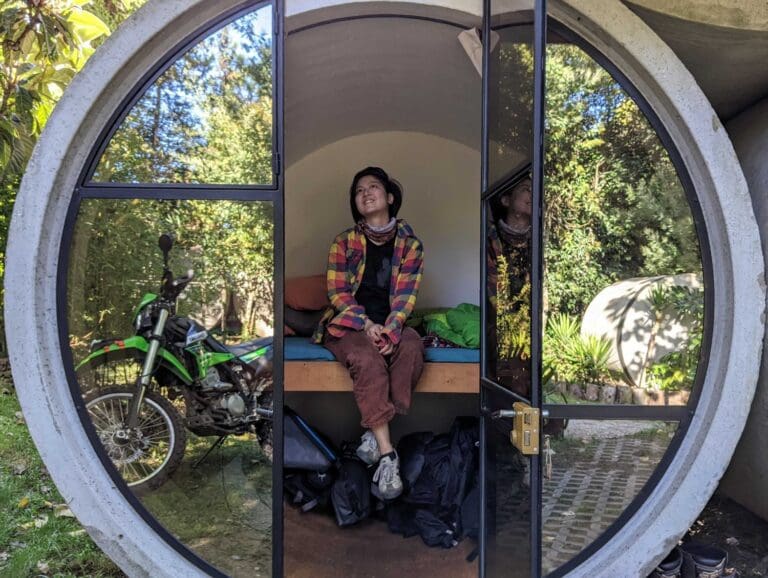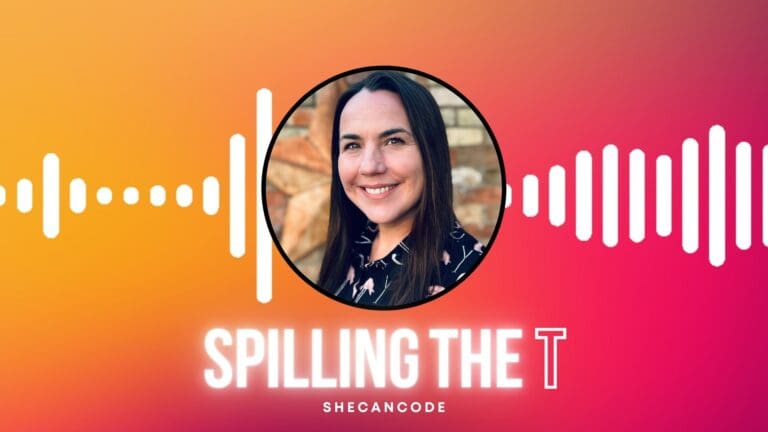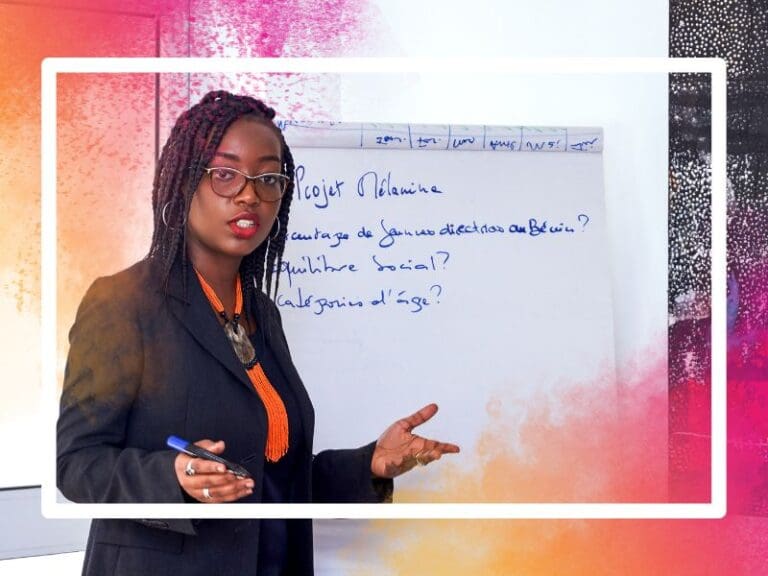I started working as a Software Engineer when I was 19-ish and worked through odd development jobs (music catalogue sorter, underpants image database builder, hospital touch screen creator) before going to SIGGRAPH and starting a career in VFX. I worked in the film industry and have credits in Marvel movies working in the pipeline and then R&D. I now work at The Foundry as a Lead Engineer. I am visibly Asian.
What first sparked your interest in working in the tech industry?
When I was a small child, I played ‘Below the Root’, a game where you can play as a variety of different characters, including different magic powers, different ages and backgrounds and different genders – a game where as a girl child, I could actually play a girl child. The in-game characters respond to your character depending on these choices, so it had an interesting social aspect.
I enjoyed the dreamlike quality of wandering through this tree-based society (I loved climbing trees at the time too), the interactions with the other characters, and the exploration aspect. I think, at that time, I wanted to make something similar and be able to build that kind of world. Running ‘Below the Root’ (I think through a command terminal) was probably one of the first things I learned to type on a computer.
What qualifications have you found most useful to hold as a member of the engineering team?
A computer science degree would likely be the most useful. I haven’t completed a whole degree, but I’ve attended quite a few courses in software architecture, the basics of operating systems, and computer graphics. It’s extremely helpful to be able to correctly apply design patterns, understand memory management, and write asynchronous software. A lot of this can be found online and can be self-taught through personal projects, but the general curriculum for a computer science degree covers it well.
How can companies support the women in tech community better and how does The Foundry continue to develop your career?
The Foundry regularly gives employee feedback surveys, where we check if people with less representation are reporting less satisfaction with the company and ask for suggestions. After the results are collated, individual teams look into ways to address any problems. These teams then create action plans, including paid time to help with causes that we believe in.
I also started as an ordinary Software Engineer, and in the four years of being at The Foundry, I’m now a Lead Engineer – I am one of two female Lead Engineers in the Nuke (one of our products) Team. Our CEO is also a woman, and we have many more examples of women in leadership positions.
In terms of supporting women in the tech community better, I think the most important thing is to promote women to leadership positions. This is a mutually beneficial activity, as excluding half the population is discarding talent. Women can bring a different perspectives, insights and opportunities.
Creating objective standards and criteria for advancement and pay is also more resilient to unconscious bias than offering advancement and pay rises based on a gut feeling. Pay reviews and reporting should also be examined regularly to make sure that there isn’t any discrimination. Regular surveys also help identify if women are leaving the company at a rate higher than men and if there’s anything that can be done to help employee retention. I think that ultimately, the best thing that companies can do to support women is not the fluff of a Woman’s Day or ceremony, but to promote and pay women equally to men and to give the same career opportunities to women that are doing the same job.

What tips would you give to women in tech looking to excel at the interview stage?
Prep well beforehand, research the company. Try and find out the kind of work they do, which might inform the kind of technical questions they might ask. Be confident, and know that if you made it to the interview stage, you’re already somewhat there! If you can’t think of an answer to a question, think laterally, and see if there’s anything relevant to the question that you can respond with or respond with the way that you would find the answer to the question. The interview stage can be tough because often you’ll be the only woman there, so it can be more difficult to connect with the interviewers.
In your experience, does being a woman in tech come with extra mental challenges that you have to overcome, such as doubting your own ability?
I have to be really confident and quick to pick up on situations. For example, when I was starting out as a Developer, a colleague and I made some software that would display notifications from the company’s internal network – internal job advertisements, construction work on which site, etc, on a billboard. My supervisor at the time decided to present this work as his own – but had no idea how it worked. I stepped in to present the work instead, and I made it clear that I was the one that had actually worked on the billboard.
 I’ve also had situations where I’ve been told things like “women aren’t logical” – itself an illogical statement. “Women can’t be leaders” and I’ve heard even more misogynistic chat in the workplace. I’ve presented ideas myself that were rejected until I had a male colleague propose the same idea. For example, I’d say: “I think we need to refactor the code here,” to which I get a response like, “That sounds too risky”, and a male colleague saying pretty much the same thing, and being told: “Yes, sounds like time for some spring cleaning”. The constant push back can be demoralising. Calling it out hasn’t always worked in my favour either! Sometimes, in order to get a project done, I’ll have to work twice as hard as a man would have to, and present with graphs, whitepaper citations, and projection of the usefulness of the idea whereas a suggestion would have been fine from a male colleague.
I’ve also had situations where I’ve been told things like “women aren’t logical” – itself an illogical statement. “Women can’t be leaders” and I’ve heard even more misogynistic chat in the workplace. I’ve presented ideas myself that were rejected until I had a male colleague propose the same idea. For example, I’d say: “I think we need to refactor the code here,” to which I get a response like, “That sounds too risky”, and a male colleague saying pretty much the same thing, and being told: “Yes, sounds like time for some spring cleaning”. The constant push back can be demoralising. Calling it out hasn’t always worked in my favour either! Sometimes, in order to get a project done, I’ll have to work twice as hard as a man would have to, and present with graphs, whitepaper citations, and projection of the usefulness of the idea whereas a suggestion would have been fine from a male colleague.
The mental challenges are real. I try to look at everything objectively. My work has to be cleaner and more successful as I feel like I can be judged more severely. Errors have to be minimised, as it can lead to being dismissed more frequently. So definitely hire more women. If they’ve made it through this gauntlet they’re going to be pretty good.
Is there any advice you would give women in tech considering a career in engineering that you wish someone had told you?
The degree of discrimination it’s something to keep in mind. It is possible to still succeed in tech, and it can be a rewarding career. I wish someone would have told me that there would be more women as time went on and that one day, I would work in a company with three women in the C-Suite, who see the benefits of a diverse workplace with everyone working together equally.









